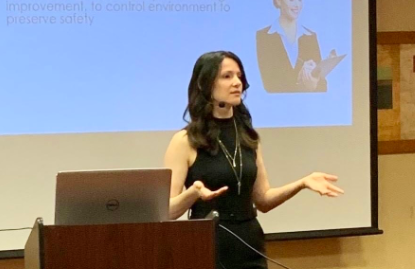IFS and The Polyvagal Theory. Healing through compassion and connection
Get access to the recordings of this online IFS workshop series (no time limits).
We distinguish 3 Levels of knowledge and experience in IFS therapy:
- Beginner:
You don’t know what IFS therapy is or you are on the beginning of your IFS journey and want to know the basics of the model. - Intermediate:
You already know the basics - you’ve done an introductory workshop or course and you want to learn more. - Advanced:
You’ve completed a number of IFS workshops and/or an IFS Institute Online Circle and/or a Level 1 training and are ready do dive deeper into the model.
-
Alexia Rothman

-
4-week series

-
10 hours of video

-
Recording

experiential activities:
-
Personal practice (journalling)

-
Pre-recorded demo sessions

-
Guided meditations



What is happening on
a biological level?
Despite the diversity of content that brings clients to therapy, difficulty regulating their emotional experience is at the heart of their struggles. Clients can feel hijacked by extreme emotional states, uncomfortable in their own skin, and think or behave in ways they wish they wouldn’t.
Polyvagal Theory (PVT) helps us understand what is happening on a biological level when our clients are emotionally dysregulated or stuck in adaptive survival states, such as fight, flight, freeze, or numb.

IFS therapy perspective
Internal Family Systems Therapy (IFS) offers a compassionate, non-pathologizing approach to healing the wounded, burdened, and traumatized parts of clients’ systems and increasing internal harmony and connection.
This workshop explores the integration of IFS therapy and Polyvagal Theory to help clinicians more safely and effectively use the IFS model in treatment.

During this workshop
you will:
- Understand how IFS works in concert with the nervous system to promote healing and transformation.
- Learn how an understanding of Polyvagal Theory can help therapists and practitioners implement IFS more safely and effectively, especially in the systems of clients with complex trauma.
- Explore, through didactic segments paired with observation and discussion of real video examples, how to seamlessly integrate IFS and PVT in treatment.
Implement the Polyvagal Theory into your IFS practice
A series of 4 IFS online workshops with Alexia Rothman

Use the IFS model more safely and effectively through the understanding of how IFS works in concert with the nervous system.
By signing up for "IFS and the polyvagal theory. Healing through compassion and connection" workshop series you get:
- All-time access to the workshop recordings – no time limits,
- Training materials ready for printing,
- Certificate of Completion.
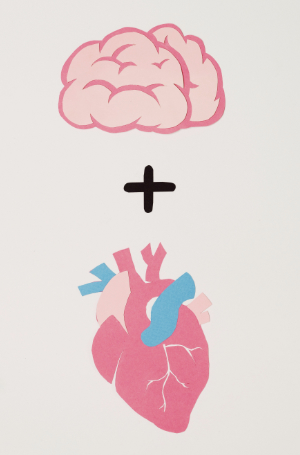
During IFS and the polyvagal theory we will:
- Describe the main principles of Polyvagal Theory most relevant to clinical work, and how PVT can inform and enhance application of IFS.
- Translate Polyvagal principles into IFS language and describe how they can be understood through an IFS lens.
- Explore how IFS therapy offers the key elements required by the nervous system to support the client’s abiity to effectively engage in treatment: context, choice, and connection.
- Recognize the impact of the therapist’s internal state on clinical work and how clinicians can use this awareness to facilitate client regulation and healing.
- Illustrate how IFS techniques can facilitate clients’ ability to regulate their emotional and physiological states in and between sessions through the process of “Internal Co-Regulation.”

- Utilize IFS strategies to shift clients’ nervous systems towards regulation and help them access their own capacity for healing.
- Explain the IFS position on traditional grounding and emotion regulation techniques and the importance of compassionate messaging to parts when using such techniques.
- Develop skills to help clients foster attuned, trusting relationships with their hyperaroused and hypoaroused parts, as well as parts that strategically utilize adaptive survival responses, such as fight, flight, freezing, and numbing, for protection.
- Distinguish between empathy and compassion through an IFS lens, and their relevance to the integration of IFS and PVT.
- Identify client-level and therapist-level considerations for adjusting the empathy-to-compassion ratio in commonly encountered therapeutic situations.
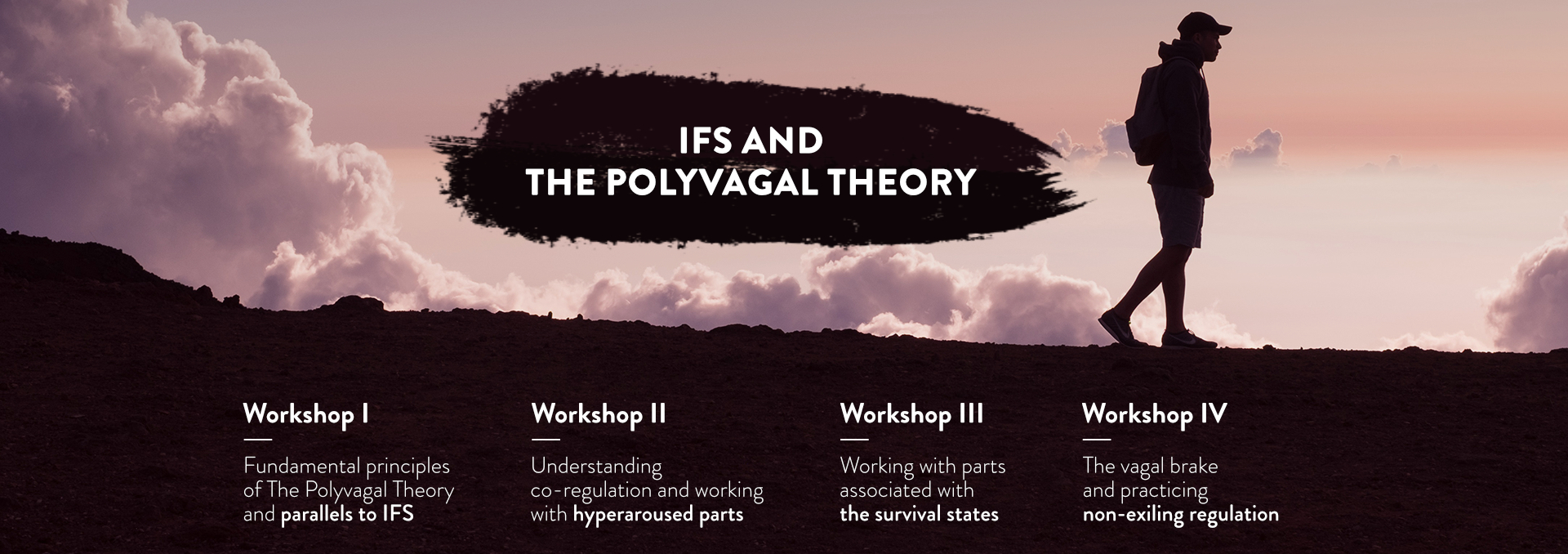
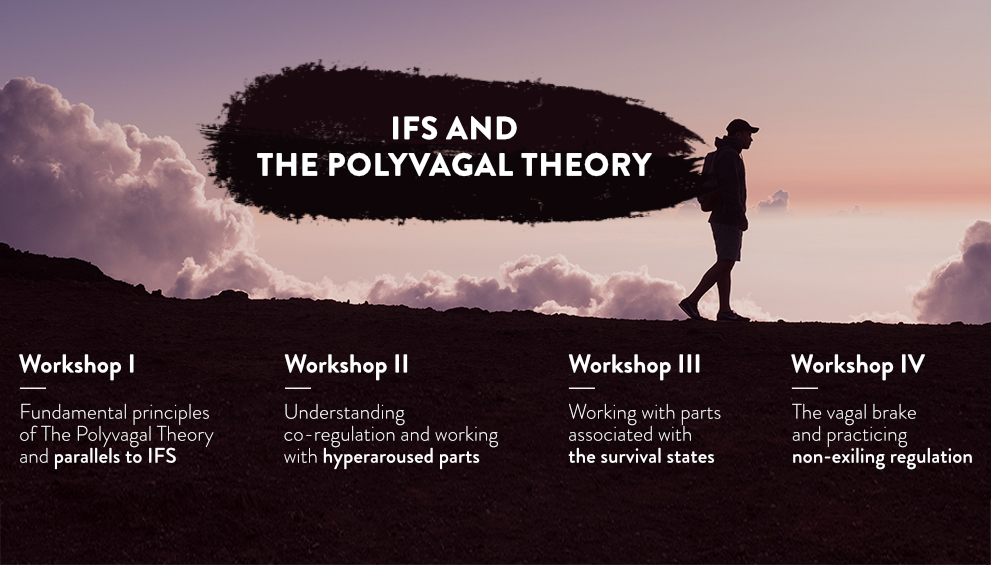
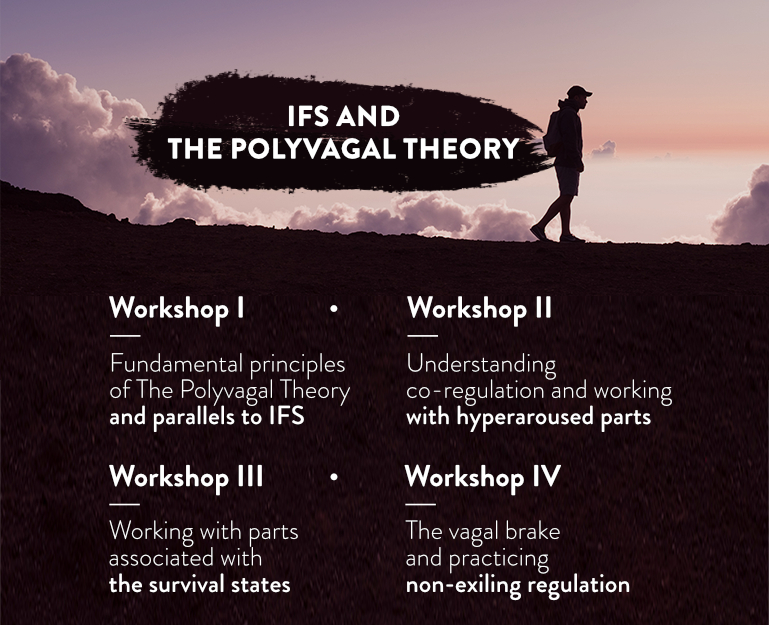

Workshop 1: Fundamental principles of The Polyvagal Theory and parallels to IFS
During this workshop we will:
- Learn about the structure and functions of the Autonomic Nervous System (ANS).
- Identify regulated and dysregulated (adaptive survival) states of the ANS.
- Learn how parts (in IFS) can influence and be influenced by states of the nervous system.
- Discover how Self can be understood in terms of the nervous system .

Workshop 2: Understanding co-regulation and working with hyperaroused parts
During this workshop we will:
- Learn about co-regulation, one of the organizing principles of the autonomic nervous system.
- Discover how the Self-led presence of the IFS therapist can contribute to re-tuning clients’ nervous systems.
- Learn about using IFS with hyperaroused parts.
- View and discuss video examples of Polyvagal-informed IFS with parts associated with the Sympathetic survival state.

Workshop 3: Working
with parts associated
with the survival states
During this workshop we will:
- Watch and discuss therapy video segments that involve working with parts associated
with the sympathetic survival state. - Learn strategies for working with hypoaroused parts, including those associated with
the dorsal survival state. - View and analyze therapy video segments that involve working with parts associated
with the dorsal survival state.

Workshop 4: The vagal brake and practicing
non-exiling regulation
During this workshop we will:
- Learn about the vagal brake and understand how IFS can improve its functioning.
- Watch and analyze therapy video segments involving working with parts associated with the
sympathetic and dorsal survival states. - Discuss non-exiling methods of incorporating body-regulating techniques in therapy and
between sessions .
See what Richard Schwartz says about Alexia

Lexi Rothman not only knows IFS deeply, she embodies it. She gets my highest recommendation as a therapist or presenter!
Richard C. Schwartz, PhD, Founder of Internal Family Systems (IFS) Model of Therapy

Completion of IFS Level 1 Training is not required
At the same time, you need to know the fundamentals of IFS, as we don't offer basic didactics about the model during this workshop.
Make sure that you:
- Have completed a thorough introductory course/workshop about IFS or the IFSI Online Circle,
- Have a desire to embody the IFS Model – deepen the knowledge of your own system, and learn tools that aid you in this process.

How it works
The workshop was held live in January 2023.
The whole process has been structured so that you can go through it at any time, at your own pace. Explore almost 10 hours of video material - it's important that you find the right space to immerse yourself in this process.
The recording contains didactics, meditations, demo sessions, and practice instructions so you will be able to do personal work in your own time. Please note that the practice group sessions and sharings were not recorded.
Remember that you get unlimited access to the workshop recordings, which means you will be able to view them in a year or even in a few years.

Up to 48 hours after purchase, if you are not completely satisfied just let us know about it. We will give you a full refund. You are not required to give any reason. You have nothing to lose!
A detailed description of experiential activities:
Please note that the teacher will respond to the needs of the group and because of that, the chosen activities may change
-

Personal practice (ex. journalling)
Personal practice means working on your own, usually with a piece of paper, after hearing the instructions explained by the teacher. These exercises may be various - sometimes you will be invited to communicate with your parts by journalling, sometimes you will do a drawing exercise (like mapping your parts). Other times you will get a more complex set of instructions and 10 or 15 minutes to do a piece of the process on your own.
-

Guided meditations
Guided meditation is an internal practice that you do with closed eyes, following the teacher's voice. The teacher will invite you to sit back, relax, and focus on your inner world. You will meet your parts, talk to them, and often learn things you weren't aware of before. Guided meditation can allow you to do a significant piece of inner work.
-

Pre-recorded demo sessions
Teachers show videos of sessions that they have recorded in the past. The sessions are related to the topic of the workshops.
Opinions about this workshop series
Implement the Polyvagal Theory into your IFS practice
A series of 4 IFS online workshops with Alexia Rothman (12 hours in total)
on January 5, 12, 19 and 26, 2023.

Use the IFS model more safely and effectively through the understanding of how IFS works in concert with the nervous system.
By signing up for "IFS and the polyvagal theory. Healing through compassion and connection" workshop series you get:
- Access to 4 online workshops (12 hours in total),
- All-time access to the workshop recordings – no time limits,
- Training materials ready for printing,
- Certificate of Completion.



